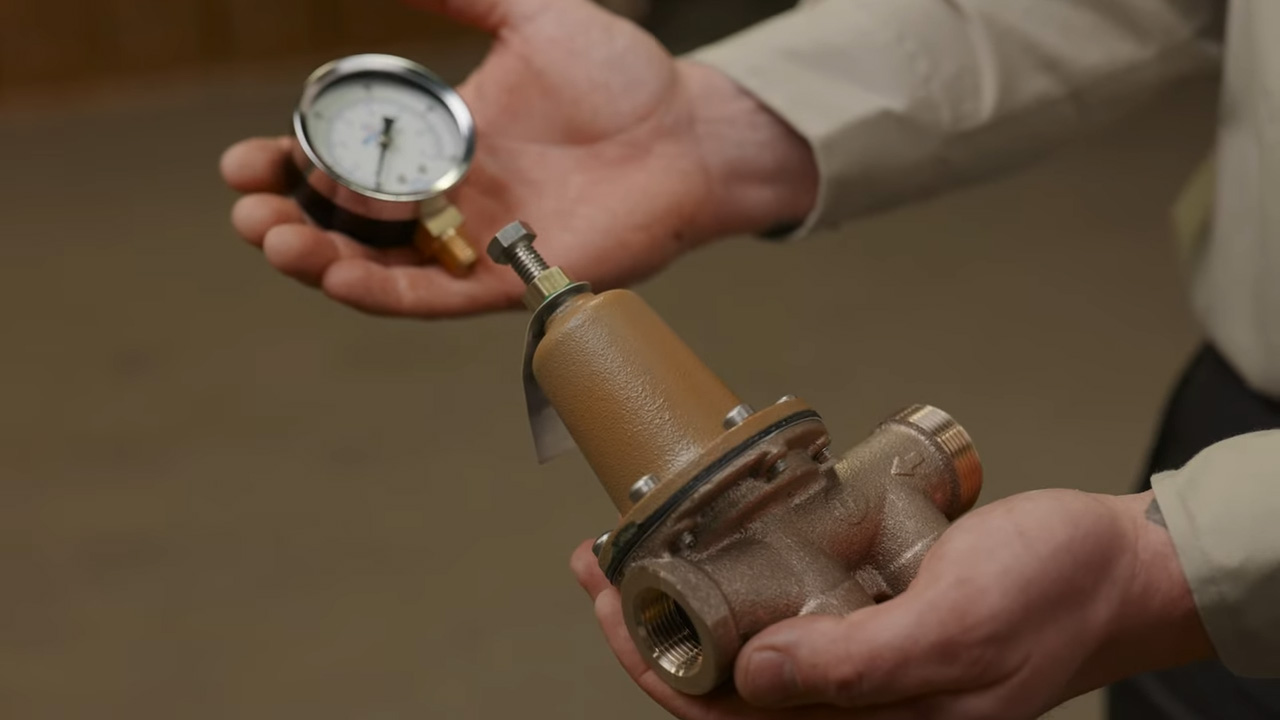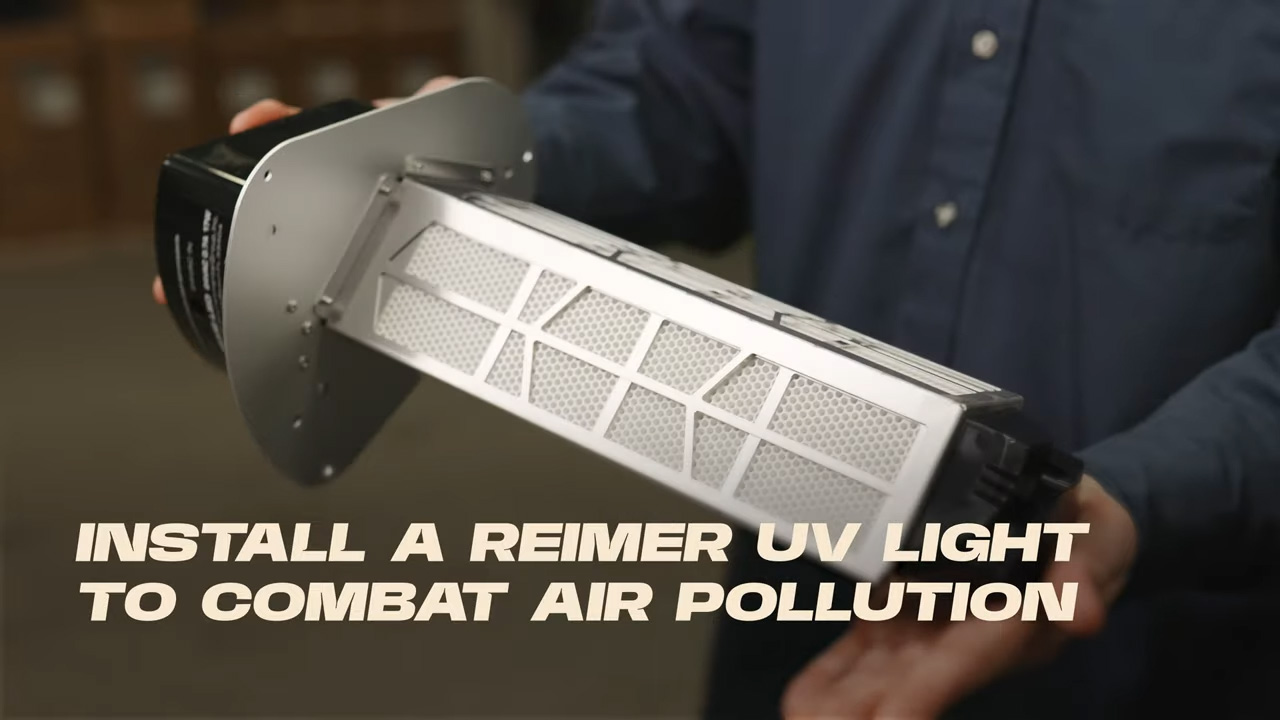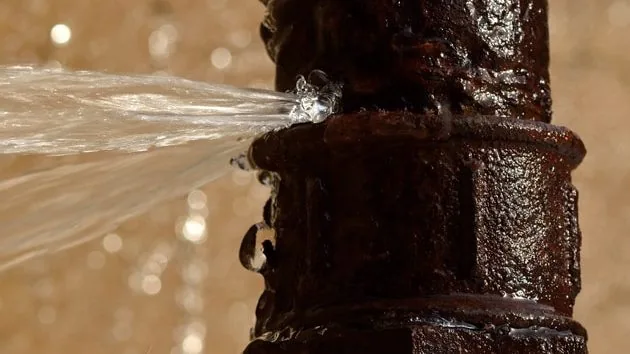The air you breathe matters, no matter where you are. In this blog post, we’ll discuss why indoor air quality testing is so important to your family’s health, and what it might find in your home’s air.
Invisible, but important
When your air conditioner stops working in the summer, you’ll know it because your home will get hot. When your furnace stops working in the winter, you’ll know it because your home will get cold. However, when your home’s air ducts begin transporting air filled with dust, pollutants, bacteria, and who knows what else, how will you know? It’s possible for your home’s heating and cooling systems to be working just fine, yet the indoor air quality in your home is suffering.
The good news is that the team at Reimer Heating, Air Conditioning, and Plumbing can help you identify potential problems with indoor air quality testing. This professional assessment of your home’s state will find any major red flags and let you know what’s coming in from the outside. Our report doesn’t just show you what’s wrong and then leave: instead, we take the time to review multiple mitigation strategies for correcting issues, so that your home’s air is clean and good to breathe in. Keep reading to learn more about indoor air quality and what we look for when testing.
Why should you get indoor air quality testing?
Indoor air quality matters. On a daily basis, you likely spend more time in your home than anywhere else: after all, think about all the hours you spend sleeping there alone. That’s a lot of breathing. Now, imagine that your place of work also has questionable indoor air quality. You’re lungs are taking in a lot of bad air.
If your home’s air is full of dust and allergens and you’re sensitive to allergies, you’re going to be a coughing, sneezing, water-running mess in the one place where you should expect some relief. If your home’s air ducts are spewing out bacteria and viruses, your chances of getting sick go up significantly.
This isn’t superstition. The U.S. Environmental Protection Agency and a number of other organizations agree that poor indoor air quality is, at best, a nuisance to your comfort, aggravating allergies and causing more sneezing. At worst, as in the case of radon infiltration (more on that later), it can pose a significant risk to you and your family’s health. Indoor air quality testing is the only way to be sure the air you’re breathing is healthy and free of harmful material.
Ok, what’s in my home’s air?
While each home may have different particulate matter, here are some of the things our indoor air quality test specifically looks for:
- Allergens: These include pollen, pet dander, and far more. If your eyes are watering and your nose is running with no other signs of sickness, allergens may be to blame. You can probably expect your symptoms to spike when you walk outside, but if you’re miserable indoors, too, it might be a sign that your air filter is insufficiently filtering out particulates. Don’t just treat this with allergy-suppressant medication. Instead, consider indoor air quality testing to tackle the problem at its source.
- Pollutants: Like allergens, you’d expect to find these outside. Produced by automobile exhaust and industrial smog, this form of pollution can get into your home and linger there. The impact of pollutants may be greater if you haven’t taken any mitigation steps.
- Bacteria and Viruses: Floating on the wind, airborne illnesses can be carried into your home through your HVAC system and your ductwork, where they can infect you and your family. Instead of taking sick days, consider having Reimer test for airborne contaminants and installing a solution, such as a device that exposes incoming air to cleansing UV rays.
It’s also possible that your air conditioner is to blame for some of the poor-quality air coming into your home, especially is entrances to the ducts are dusty or there’s been a build-up of dirt and grime. Learn more about air conditioning maintenance from Reimer.
What is radon?
Deep within the earth, uranium is very, very slowly decaying—some variations of this element have a half-life of 4.5 billion years. As the uranium decays, some of it turns into a radioactive gas. This gas, the element radon, moves up through the earth into the atmosphere. However, it can often become trapped in sources of groundwater and in homes, where it presents a potential danger to humans and other living things.
The surface of the earth is home to radon, and chances are that you’re breathing a very small amount of it in right now. In this way, radon is present in every home or building and is considered a form of background radiation. However, when the amount of radon jumps from that baseline to an elevated level, it becomes a threat. Highly radioactive, radon attaches itself to dust particles and is readily breathed in by living things, where it can cause cancers to form in the human body. In fact, radon is the second-leading cause of lung cancer in the United States, behind smoking.
Increased radon exposure varies by geographical area and can impact any type of home, ranging from a new home to an older one. However, homes with tight crawlspaces or basements may be especially vulnerable, as they present areas where radon can become trapped and concentrate without much capacity to be released.
Reimer offers radon testing as a part of our indoor air quality tests, and our technicians are qualified to advise you on mitigation methods for removing radon buildup. Give us a call to learn more about this, or check out the EPA’s guide to radon exposure. It’s not a bad idea to get your home checked, just for the peace of mind factor alone.
How can I schedule indoor air quality testing?
Give Reimer a call. Our team can help you determine what’s in your home’s air, and provide you with advice and solutions for removing pollutants, allergens, and other, more serious hazards. Contact us today to learn more!





